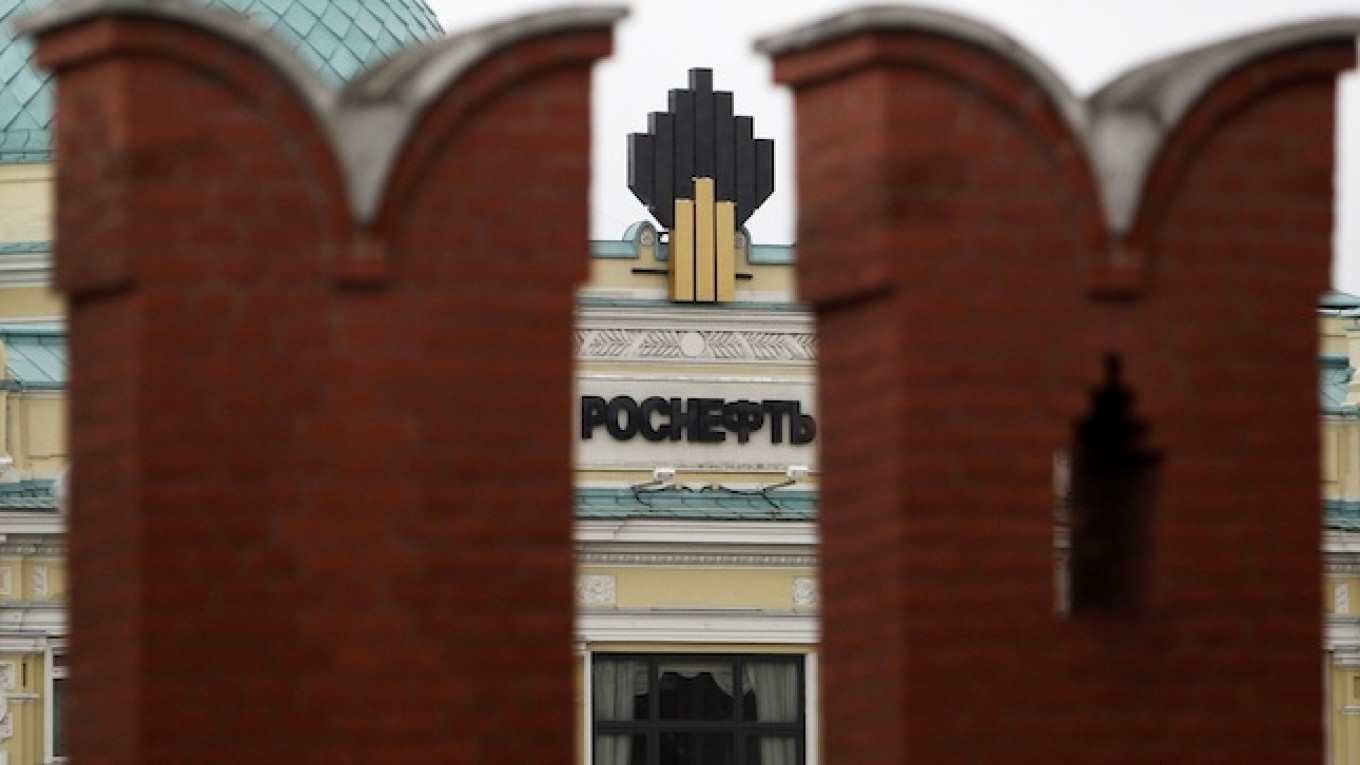The Russian government has announced the criteria for purchasing private shares of state-owned oil company Rosneft, the Vedomosti business daily reported Friday.
The government is selling 19.5 percent of Rosneft's total shares, and hopes to make at least 700 billion rubles ($11 billion). This is part of Russia's largest privatization scheme since the 1990s, with the Russian government reluctantly selling assets during a deep economic recession.
Purchasers of Rosneft's private stake will be subject to several requirements. First, any share package purchased must be held for at least three years, to prevent short-term investing.
Second, investors will be required to sign a shareholder's agreement that obliges them to vote in favor of any government member who applies for a seat on Rosneft's board of directors.
Third, an investor is required to be free of debt and with a clean record of corruption. If potential investors hold debt, they must present a plan for debt consolidation.
A preliminary list of candidates for purchase of the shares must be submitted to the government by Sept. 1. The successful privatization of oil assets is not guaranteed, and if the price of crude oil climbs, analysts say prospects of sale are dim.
The first sale of Russia's new privatization campaign was concluded this week when a 10.9 percent stake in the world's largest diamond miner, Alrosa, was sold for 52.2 billion rubles ($816 million). The shares went for 65 rubles ($1.01) each.
Under President Vladimir Putin, the Russian government's stake in the economy has increased dramatically, to as high as 55 percent in 2015. When asked why the state is looking to sell assets, Putin replied: ?€?We need the money.?€?
A Message from The Moscow Times:
Dear readers,
We are facing unprecedented challenges. Russia's Prosecutor General's Office has designated The Moscow Times as an "undesirable" organization, criminalizing our work and putting our staff at risk of prosecution. This follows our earlier unjust labeling as a "foreign agent."
These actions are direct attempts to silence independent journalism in Russia. The authorities claim our work "discredits the decisions of the Russian leadership." We see things differently: we strive to provide accurate, unbiased reporting on Russia.
We, the journalists of The Moscow Times, refuse to be silenced. But to continue our work, we need your help.
Your support, no matter how small, makes a world of difference. If you can, please support us monthly starting from just $2. It's quick to set up, and every contribution makes a significant impact.
By supporting The Moscow Times, you're defending open, independent journalism in the face of repression. Thank you for standing with us.
Remind me later.


